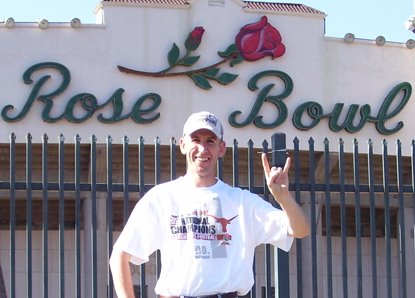TIPPING POINT
 I recently completed another good book. Over the past three weeks or so I have digesting some of the thoughts from Tipping Point, which is a brilliant look at why and how some idea, epidemics "tip" and others don't.
I recently completed another good book. Over the past three weeks or so I have digesting some of the thoughts from Tipping Point, which is a brilliant look at why and how some idea, epidemics "tip" and others don't.For example, and this one was really amazing to me, when Paul Revere did his famous ride to warn people that the British were coming did you know a similar ride was made by a person named William Dawes? Each person took a different route to spread the warning but the British won the battles on Dawes route while the Americans won the battles on Revere's route. It was absolutely fascinating to read about how Revere was a "connector" and knew all the necessary people but Dawes was not and thus battles were lost.
Chapter 2 (The Law of the Few) was the most fascinating chapter in the book for me. Something to thinking about - Think about the last piece of clothes you bought, movie you watched or restaurant you visited. In those cases was your decision to buy that article of clothing, watch that movie or eat at that restaurant based heavily on someone recommendation they shared with you?
A few other interesting notes according to Gladwell:
- For something to tip it needs an agent of change which is either: The Law of the Few, the Stickiness Factor and the Power of Context.
- The Law of the Few says that things tips when a Connector (like Paul Revere), a Maven (a data collector) or Salesman is involved.
- In an example of the Stickiness Factor he talks about shows like Sesame Street and Blues Clues affect children and states, "Kids don't watch when they are stimulated and look away when they are bored. They watch when they understand and look away when they confused."
- The Power of Context states that we are more than just sensitive to changes in context. We're exquisitely sensitive to them. For example, crime rate in New York didn't drop because of better police enforcement but rather the city cleaned the subway cars of graffiti and broken windows.
- Peer and community influence is more important than family influence in determining how a child turns out.
- Suicide rates jump across the country when just one makes national news (example - Marilyn Monroe's suicide)
- Smoking is not cool but Smokers are cool is a major reason the smoking epidemic tipped into the teenage main stream.
Those are just a few thoughts that I found interesting. I also found quite intriguing, after reading Freakonomics, how each book took a different route to explaining how conclusions are being drawn and epidemics are happening. If you read one, you must read the other book.
There were a few points I was really struggling to stay with the book. There are some amazing "paper turning" part and other parts that felt like I bored. For the most, though, it was a very compelling and insightful read.


2 Comments:
Great post. I used to be checking constantly this weblog and I am inspired! Extremely useful information specially the ultimate part :) I maintain such info much. I used to be seeking this particular information for a very lengthy time.
Thank you and good luck.
cash for cars brisbane
cash for cars toowoomba
By Anonymous, at 12:20 AM
Anonymous, at 12:20 AM
Thanks for sharing. Wow, that was strange. I just wrote a really long comment but after I clicked submit my comment didn't show up. Grrrr... well, I'm not writing all that over again. Anyways, just wanted to say fantastic blog!
cash for unwanted cars ipswich
free car removal
By Delight Car Removal, at 12:35 AM
Delight Car Removal, at 12:35 AM
Post a Comment
<< Home